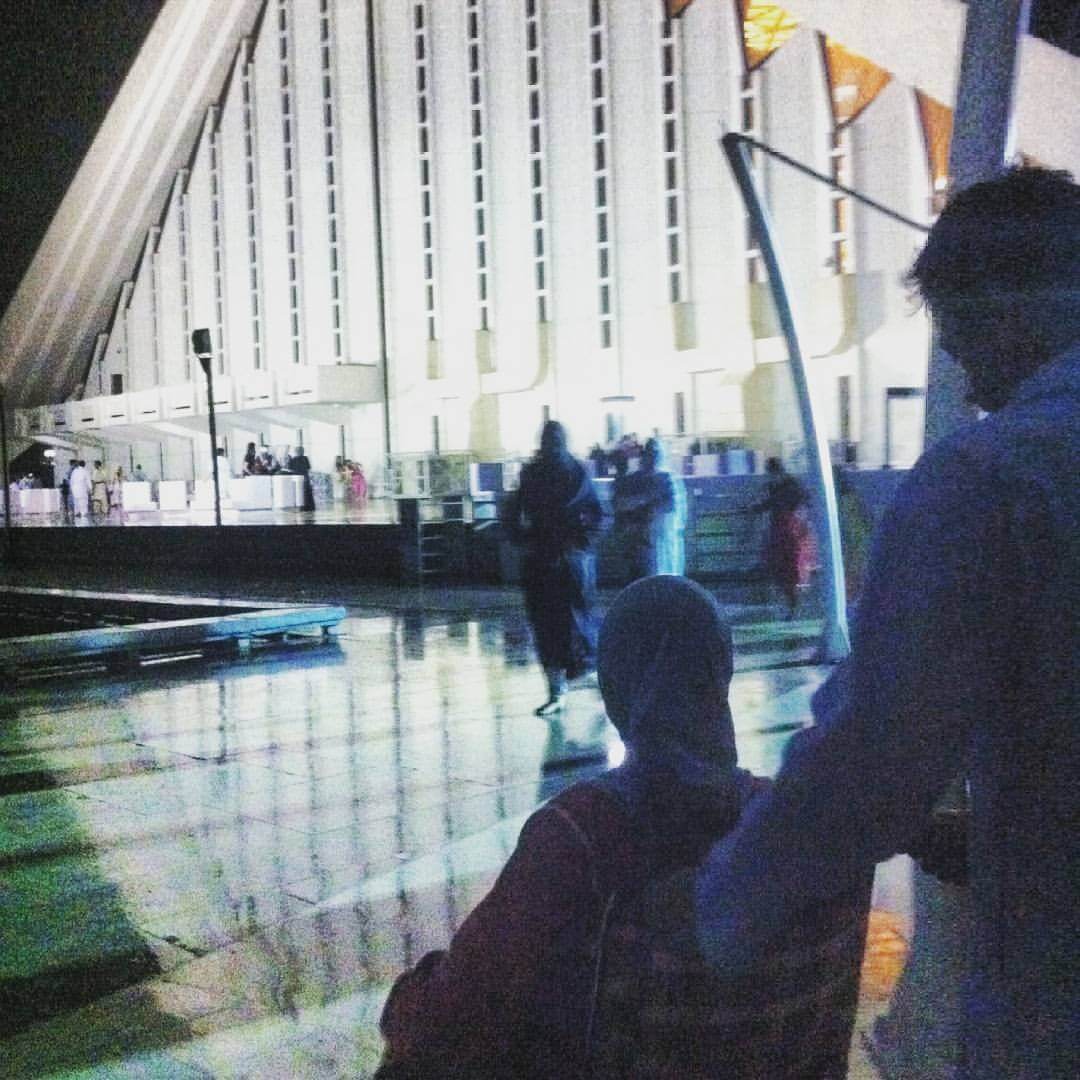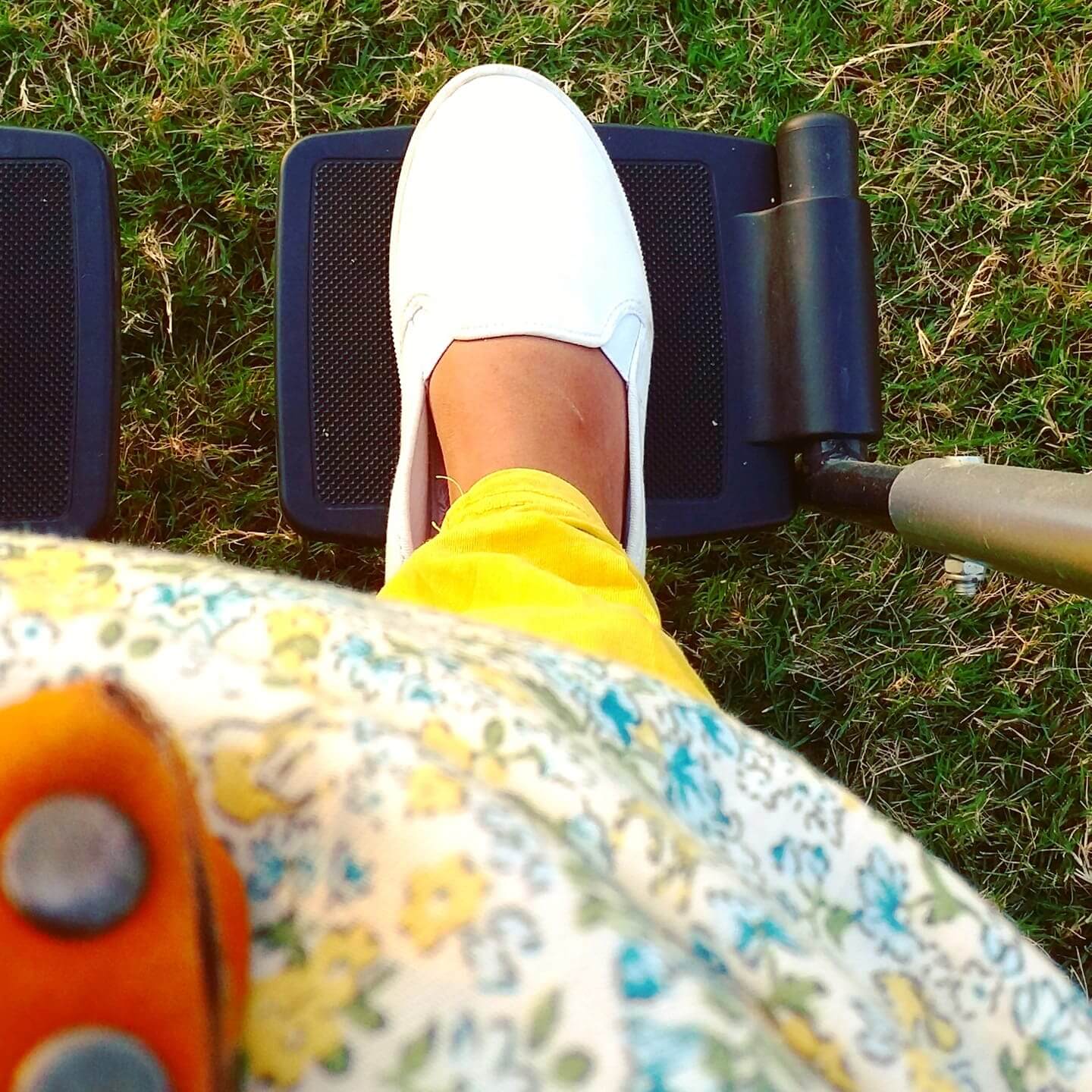Resolving disability through faith-the story of Sa'diyya Nesar
- By: Shameel IbrahimEdited by: Jay Ganglani
- 2020-10-30
Sitting in a wheelchair, and spreading positivity, despite her adversities through her words and writings, a Pakistani woman talks about her struggles of being a woman with disabilities.
One such personality is Ms Sa'diyya Nesar. She is a disabled woman, who wishes to empower people through her writing, speeches and community care initiatives. She has written a book called Strength from Within and was recently awarded the 2020 Social Justice Fellowship under the theme of 'disABILITIES and Empowerment: Less Assumptions, More Conversations' by the Resolve Foundation.
Ms Nesar, born and raised in Hong Kong was diagnosed with myopathy, which results in weak muscles since birth. She uses a wheelchair and needs assistance when going out, when moving around at home and while laying down, where she has to use a breathing machine.
According to the Hong Kong Monthly Digest of Statistics, there were 578,600 people with disabilities, as of December 2013. Among them, 320,500 persons said that they had disabilities which had a "restriction in body movement."
In 2013, she graduated from the University of Hong Kong with a Bachelor's degree in English Language and Literature and later began to write for different news outlets about her struggle with disability.
She refers to her struggle as a result of "attitudinal barriers"— which refers to stigmas associated with disability. Ms Nesar also believes that it is an assumption that people with physical disabilities mainly suffer from physical barriers.
"It's usually assumed that the main challenge for those with disabilities in everyday life is their health or the physical barriers that we face.
It's actually not.
The main challenge lies in being judged or being treated differently. Being treated differently in a way that is derogatory instead of accommodating. There's a lack of inclusion and the alienation that can come from that. There is a stigma attached to disability and a lot of assumptions and misconceptions around it," she says.

She also added that the belief that those with disabilities are suffering was just an assumption. "Yes, we do face barriers. Yes, we also do go through pain. But, we are also happy with our families and our closest friends. We have hobbies just like anyone else. We have interests and preferences. Disability is part of our identity and isn't considered a form of loss. It's part of who we are," she went on to say.
Jamie Cheng, chairperson of the Department of Clinical Psychology at the Hong Kong Psychological Society endorses Ms Nesar's view on disability. While Ms Cheng understands people that feel the need to be sympathetic towards the disabled, she also feels that there is a lack of general understanding of people that live with disabilities in their everyday lives. "It's a very common thing in terms of social psychology that people tend to classify people based on your ethnicity, based on your skin colour, based on your physical appearance like how fat or thin you are."
Some in society might think that in some way, it's their responsibility, to help and to support those with disabilities. But, at the same time, they might not even be able to understand how it feels like to be a disabled person and to always be offered help without even asking for it, Ms Cheng added.
Describing her toughest moments of being a disabled person, Ms Nesar felt that being talked down upon by her peers, even after she had graduated from university, was a form of discrimination, and what she calls 'adult bullying', a phenomenon that she later realised was a common thread for those living with a physical disability.
She continued to suffer from several judgments passed by in society, even after she had progressed academically.
"We usually associate bullying with children and teenagers. I was never really bullied at school. I did experience minor bullying in my childhood, but not to the extent, where it actually harmed me."
She hopes to convey, through her book that it is completely fine to feel "vulnerable and scared" when facing turbulent times in one's life, and that she derives lessons from the prophets [of Islam], to show how she handled, and how she has learnt from those tribulations that helped her cope during those difficult times.
Apart from her book and articles, Ms Nesar also finds peace and happiness through her poetry, where she writes about the prejudice against the disabled, her aspirations for the future, and hopes for a kinder world.

According to the Hong Kong Special Administrative Region's Home Affairs Bureau, about 300,000 or 4.2% of the city's population was Muslim, as of May 2016.
Ms Nesar firmly believes that her Islamic faith can "truly comfort those with disabilities" because of the possibility of seeing what God's commandments are and what people assume.
Among those 300,000, half were Indonesians, while 50,000 were Chinese, 30,000 were Pakistanis, and the rest came from around the world, including the Middle East.
She says that the prophets did not discriminate against those with a disability and that there were even prophets who had disabilities that God honoured in her religion's folk tales.
Ms Nesar's brother, Talha Nesar attested to this and said that his sister was "very strong from a mental standpoint" and that he had always admired her qualities, whether it was her social work or personal growth as a human being.
Ms Cheng also says that religion can be a defining factor when one is faced with disabilities.
"In recent years, we've placed more of an emphasis on religion and spirituality. We do find that religion and having faith is beneficial to a lot of people, but it is a very personal choice," she said.
She went on to explain that she does have clients telling her that some feel more accepted and supported, which Ms Cheng thinks are both very important and crucial factors to the mental health of those living with physical disabilities.
"Everybody would like to be accepted, recognised and be acknowledged, and it’s a common basic need for everybody," Ms Cheng stated.
《The Young Reporter》
The Young Reporter (TYR) started as a newspaper in 1969. Today, it is published across multiple media platforms and updated constantly to bring the latest news and analyses to its readers.

A fancy walk leads locals to meet ethnic minorities' neighbours

Halloween brings large crowds to Lan Kwai Fong amid COVID-19




Comments